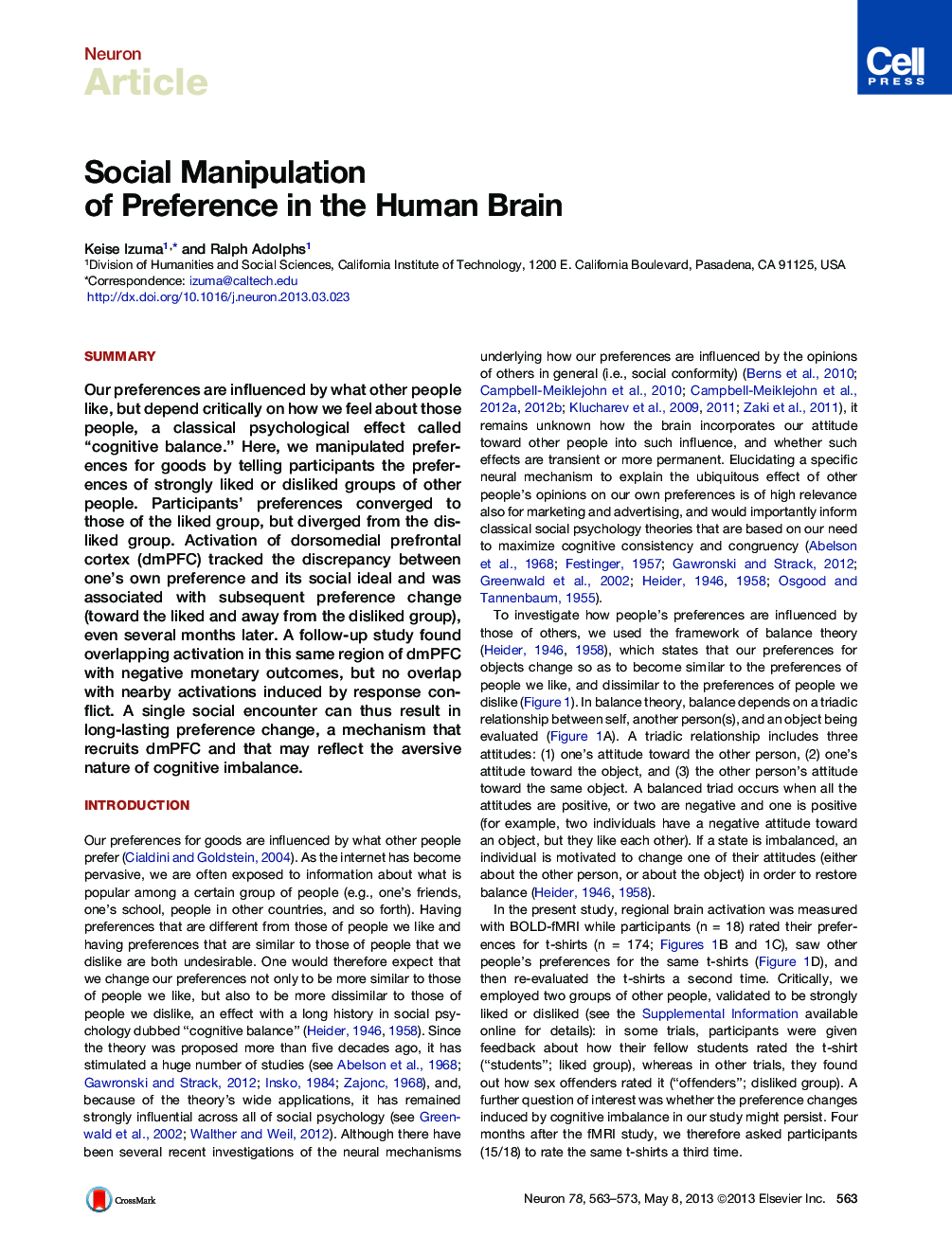| کد مقاله | کد نشریه | سال انتشار | مقاله انگلیسی | نسخه تمام متن |
|---|---|---|---|---|
| 4321328 | 1291598 | 2013 | 11 صفحه PDF | دانلود رایگان |

• Likes and dislikes of goods were influenced by other people’s preferences
• According to balance theory, liked and disliked people elicit opposite influence
• Dorsomedial PFC tracked cognitive imbalance and predicted preference change
• Both behavioral and neural effects were still seen 4 months later
SummaryOur preferences are influenced by what other people like, but depend critically on how we feel about those people, a classical psychological effect called “cognitive balance.” Here, we manipulated preferences for goods by telling participants the preferences of strongly liked or disliked groups of other people. Participants’ preferences converged to those of the liked group, but diverged from the disliked group. Activation of dorsomedial prefrontal cortex (dmPFC) tracked the discrepancy between one’s own preference and its social ideal and was associated with subsequent preference change (toward the liked and away from the disliked group), even several months later. A follow-up study found overlapping activation in this same region of dmPFC with negative monetary outcomes, but no overlap with nearby activations induced by response conflict. A single social encounter can thus result in long-lasting preference change, a mechanism that recruits dmPFC and that may reflect the aversive nature of cognitive imbalance.
Journal: - Volume 78, Issue 3, 8 May 2013, Pages 563–573